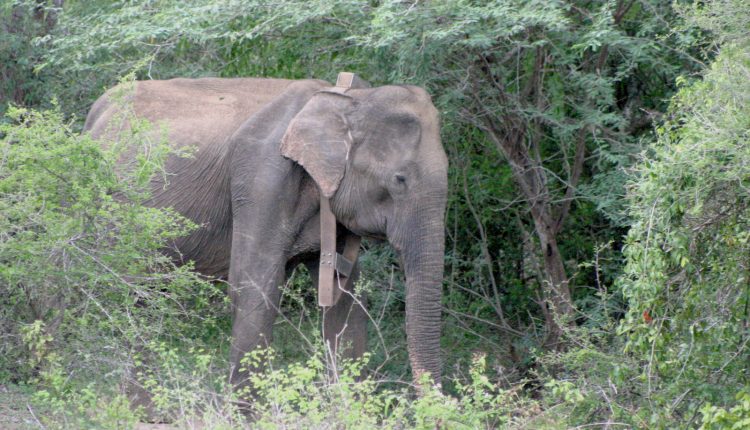
Mary Cheh: On Earth Day, let’s commit to stop the flourishing local trade in ivory, rhinoceros horn
In 2017, National Geographic identified the District of Columbia as the new hub for ivory sales in the United States — and our continued tolerance of this market ever since has been disastrous for African wildlife. Although the poaching of elephants is fueled in large part by high demand for ivory in Asia, the slaughter of these animals is undoubtedly heavily influenced by American demand. After China, the United States fosters one of the largest ivory markets in the world; our country is also a significant destination for rhinoceros horn.

Recognizing the need to restrict the market for these products, six coastal states have passed laws banning the importation and sale of ivory and rhino horn. With each new state ban, the market has shifted to new jurisdictions and, because the District does not have any laws regulating this industry, the market has moved here. This shift reflects an opportunistic international market and not the interests or values of local District residents.
Each day, an average of 96 African elephants are slaughtered by poachers — that’s one elephant every 15 minutes. Over a 10-year period, African elephant numbers dropped 62 percent, causing some experts to predict extinction by the end of the next decade. Similarly, more than 1,000 rhinos are slaughtered each year for their horns, leading to the possibility of extinction within the decade. Despite the committed efforts of governments and advocacy groups around the world to protect these animals in the wild, poachers are becoming increasingly extreme in their pursuit. Last September, in one of the largest recorded poaching incidents in Africa, the bodies of 87 elephants were discovered just outside a wildlife sanctuary in Botswana. A year earlier, poachers broke into a French zoo and slaughtered a 5-year-old white rhino named Vince, using a chainsaw to remove his horn.
Diminishing the demand and limiting the financial market for ivory and horns is key to stopping the unnecessary and inhumane slaughter of these animals —and we cannot wait.
I have introduced the Elephant Ivory and Rhinoceros Horn Trafficking Prohibition Act three times over the past three council periods — most recently in January. Now pending in the Committee on Government Operations, the legislation joins the efforts of 18 other states that have introduced similar bills to ban the import, sale, purchase, barter or possession (with intent to sell) of ivory and rhino horns. While the legislation has yet to pass, I have been able to garner more co-introducers and co-sponsors with each new reintroduction. Perhaps if an earlier iteration of this legislation had been passed, the market would not have moved here at all. Nevertheless, we must not sit passively while the ivory market thrives in the District.
Today is Earth Day, a global day of advocacy and action on behalf of the planet and our environment. Many of us will honor the day by volunteering at neighborhood park cleanups and tree plantings, and this type of advocacy on its own and in the aggregate is truly valuable. But I would like to challenge the notion that our individual environmental efforts be confined within our own borders. With this legislation, we have the rare opportunity to take a small action locally that will contribute to the closing of a global market that targets endangered species and perpetuates brutality and violence against our world’s most vulnerable animals. And we can help protect the brave men and women — several of whom die each year — who put their own lives at risk to save these animals.
Earth Day calls upon us to unite and act as good stewards of the planet and its wildlife. Let’s be ambitious in protecting the world’s endangered species.
Mary Cheh represents Ward 3 on the DC Council and chairs the Committee on Transportation and the Environment.
About commentaries
The DC Line welcomes commentaries representing various viewpoints on local issues of concern, but the opinions expressed do not represent those of The DC Line. Submissions of up to 850 words may be sent to editor Chris Kain at chriskain@thedcline.org.


My name is – James N. Short, Jr. – I reside at 2400 Branch Avenue, SE, Washington D.C. 20020 (Ward 7); I strongly support CM Mary Chey’s “Elephant Ivory and Rhinoceros Horn Trafficking Prohibition Act” and don’t know any reason our total District of Columbia City Council isn’t wholeheartedly in support of passing this urgently needed law into effect IMMEDIATELY!!!
I’ve visited Africa and Asia, and have seen for myself the Elephants from Kenya and Tanzania – How magnificent and wonderous!!!
What can citizens like myself do to support and assist in bringing Councilmember Chey’s bill into LAW, as soon as possible – I’m will to testify, or whatever needed to Help, Aid & Assist, this Emergency Legislation!!! I have been in our Nations Capitol for all, 72 years of my life, vote in every election and very active in my Hillcrest Community. My daughters were with me in Africa last month and you can count them in, too!
James N. Short, Jr.
Deputy Fire Chief (retired)
DC Fire & EMS Department
Washington, D.C.
202.575.2012
James